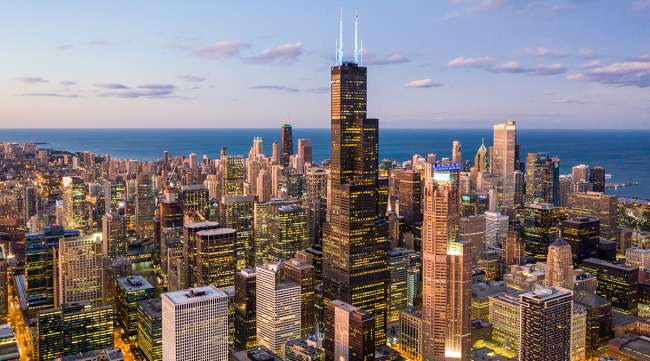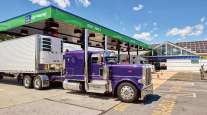Staff Reporter
Chicago Mayor’s Budget Plan, Including Fuel Tax Hike, Is Approved

[Ensure you have all the info you need in these unprecedented times. Subscribe now.]
The Chicago City Council has voted to approve Mayor Lori Lightfoot’s 2021 budget proposal, which includes a fuel tax increase.
The 2021 “pandemic budget,” passed Nov. 24, includes plans for a 3-cent fuel tax increase in an effort to help restore the city’s financial state amid the coronavirus pandemic. According to the city’s COVID Dashboard, Chicago had 158,899 confirmed cases of the virus between March 1 and Nov. 29.
The $12.8 billion budget was designed to provide a financial road map as Chicago navigates the public health crisis. Its purpose is to close a deficit of $1.2 billion, some 65% of which is directly linked to the economic impact of COVID-19.

Lightfoot
“Budgets are more than just math problems; they are statements on our values as a city and a community of nearly 3 million people to develop solutions for our families and businesses in the face of unprecedented fiscal challenges,” Lightfoot said. “Rather than abandon our values, we chose to lean into them even more to meet this historic moment and seize our once-in-a-generation opportunity to move our city forward.”
The budget includes plans for the city’s vehicle fuel tax on nonairline purchases to increase by 3 cents per gallon. Chicago’s current vehicle fuel tax rate is 5 cents per gallon. The tax is levied on the sale of vehicle fuel to a retailer that is doing business in Chicago or that purchases fuel for use in Chicago.
The city’s vehicle fuel tax exists in addition to Illinois’ motor fuel tax, which is 46 cents per gallon for diesel and 38 cents per gallon for gasoline.
Illinois’ fuel tax rate doubled in 2019 as part of Rebuild Illinois, a $45 billion infrastructure improvement initiative.
In addition to the fuel tax hike, the budget contains provisions for a $93.9 million property tax increase that represents $56 annually on a home valued at $250,000.
The budget also approved a multiyear Capital Plan, which will address infrastructure needs such as bridge repair and replacement, shoreline revetment, street resurfacing, traffic signal improvement and Americans with Disabilities Act-accessible sidewalks. The Capital Plan is meant to put thousands of Chicago residents back to work.
The Illinois Road and Transportation Builders Association expressed support for the $3.7 billion in infrastructure work outlined in the plan.

Sturino
“IRTBA is grateful to the city of Chicago for its commitment to maintaining and improving its vital infrastructure facilities and the transparent, innovative and inclusive policies through which the program will be delivered,” IRTBA President Michael Sturino said.
Additionally, budget investments include $65 million in affordable housing and homeless prevention, $36 million for community-based violence prevention and $20 million for mental health services.
In crafting the budget, city officials relied on engagement tools such as City Council hearings and feedback from discussions that involved more than 100,000 people.
“As we look ahead to the new year, our success will continue to be rooted in those same values that have guided us throughout our incredible journey to transform our city,” Lightfoot said, “and will continue to light our way in the months and years ahead.”
Want more news? Listen to today's daily briefing:
Subscribe: Apple Podcasts | Spotify | Amazon Alexa | Google Assistant | More




